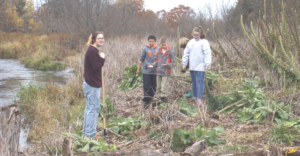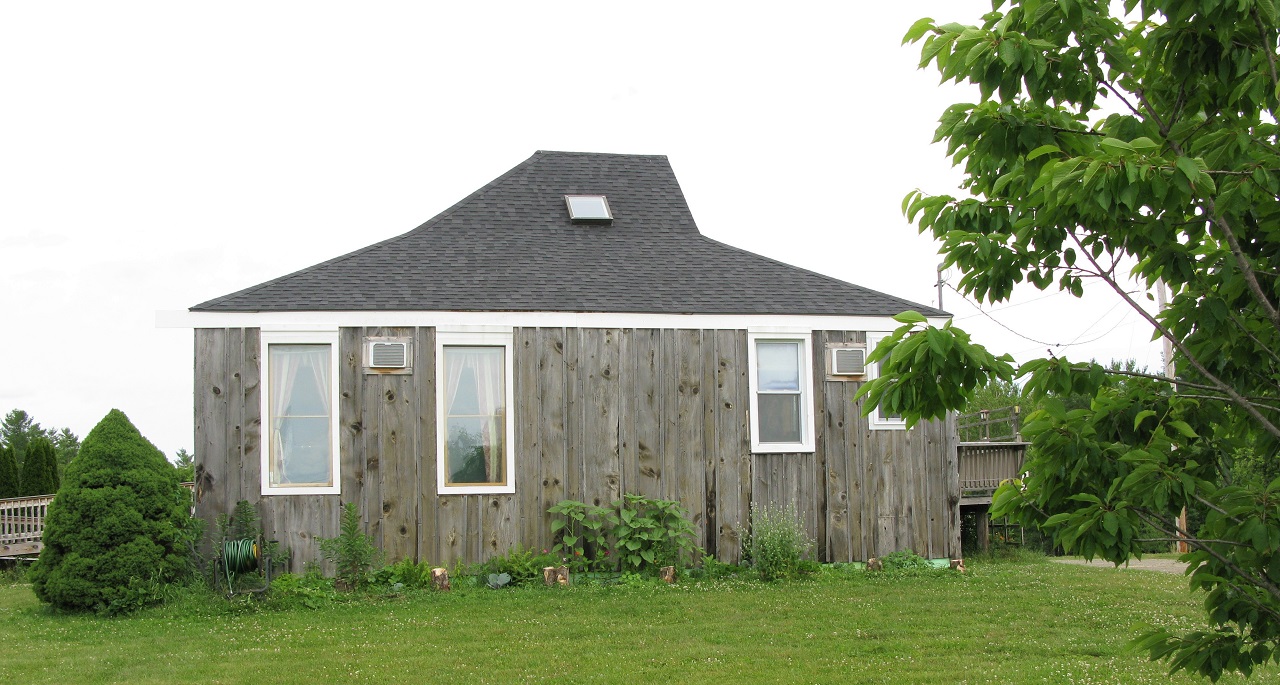
Palermo Community Foundation (photo by Connie Bellet)
Central Maine non-profit organizations: Their Mission, Their Goals
Submitted by Connie Bellet
Originally known as the Palermo Community Foundation, the organization was chartered in 1996 by a group of friends led by John Potter, Jim Osier, Dennis Sturgis, Ted Bigos, Mike McCarty, Eben Bradstreet, and Herb Flint. Their plan was to serve the needs of the community by providing a building for local groups to meet, learn, share ideas and talent, and to create a more sustainable community.
Mr. Potter had some land and a rudimentary building available, which he later donated to the new organization. Several ideas about uses for this asset were floated. These included a health clinic, a library, an art and technology teaching center, and an internet service provider. The health clinic and library didn’t work out, but Palermo Online, the area’s first ISP, moved in upstairs. The main floor became a meeting room, performance area, dining room, art studio, kitchenette, and now a weekly Food Pantry. Mr. Sturgis taught people how to use computers, while Jim Osier and others refurbished outdated and damaged computers. Eventually over 300 of these computers were donated to elderly shut-ins and low-income students in several counties.
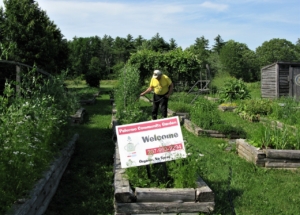
Phil White Hawk watering the garden. (photo by Connie Bellet)
In 2001, the PCF officially received its 501(c)3 designation as a nonprofit Charitable Foundation. All Board Members and Executives have always served as volunteers. The Chairman of the Board is Larry Grant, with Connie Bellet serving as President, Tom Thornton as Vice President, Melody Sherrick as Secretary, Ted Bigos as Treasurer, Phil White Hawk as CFO, Mike Dunn as Parliamentarian, and Dennis Sullivan as Building and Grounds Chairman.
By 2004, the PCF had outgrown its initial scope, and now serves at least five counties. So, it adopted a d.b.a., and is operating as the Living Communities Foundation. The organization sponsored events like the “Palermo World’s Fair,” several live multimedia concerts by Phil White Hawk and Connie Bellet, and now hosts the Great ThunderChicken Drum, a pan-tribal Native teaching Drum. There have been two weddings in the Palermo Community Center and the Grape Arbor in the Palermo Community Garden. For nine years, the LCF sponsored free monthly potluck “Dinner and a Movie” nights, featuring films about various aspects of sustainability. However, those were curtailed by the pandemic. But, as a sign of hope and abundance, Alex Bradstreet has installed a couple of colonies of honeybees in the Community Garden, and they have made a big difference in local fruit production.
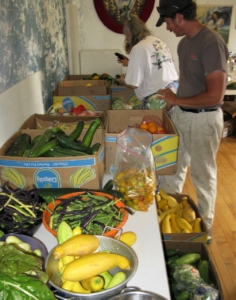
Peter Nerber and other volunteers are setting up the Palermo Food Pantry. (photo by Connie Bellet)
In 2014, June Foshay approached the Foundation about opening a food pantry in the Community Center. The weekly Palermo Food Pantry is an agency of the Good Shepherd Food Bank. For the last seven years, Ms. Foshay, as Pantry Director, has kept the pantry open every Tuesday from 11:00 a.m. to noon. Although weekly attendance varies, approximately 40 households are signed up at the Pantry. Hannaford Supermarkets graciously supplies meats, vegetables, dairy, and canned goods, while local farmers, as well as the Palermo Community Garden, provide fresh, organic greens, vegetables, and fruits for the Pantry. For more information about the Pantry, please contact June Foshay at 993-2225.
The Living Communities Foundation is funded exclusively by private and business donations, as well as by sales of Vidalia onions in the spring and Florida citrus in the winter. Until the pandemic, peaches were also a big fundraiser, but are no longer available. There have also been bake sales, bottle drives, raffles, and wine tastings. Since the Foundation is not endowed at this time, grant writing will likely loom large in the future. In the meantime, donations are always appreciated to keep the freezers running and the utilities going. See below for more info!
Looking toward the future, the Living Communities Foundation foresees more responses to community needs as the age demographics inch upwards and social structures are reorganized. Now that Covid restrictions are being lifted, families are once again welcome to schedule visits to the Community Garden to learn gardening techniques from Master Gardener Connie Bellet and take home freshly-picked produce after doing a bit of weeding. Call Connie at 993-2294 to schedule a volunteer session or other event. Groups can meet in the Grape Arbor for afternoon iced tea, and the Community Center will once again be available for meetings, seminars, discussion groups, and small parties. Perhaps the “Dinner and a Movie” nights will be reinstated. Stay tuned for Open Garden Day!
Since both White Hawk and Bellet have a history of disaster response training, one future goal is to install a transfer switch and automatic generator at the Community Center so it can be used as a community water source and warming center case of power outage in the winter. This project will cost about $10,000. A 400 foot well was drilled in 2017, and donations plus partnership with Habitat for Humanity enabled the construction of a disability ramp in 2018. The Board of Directors is considering the use of the Community Center as a Senior Center as well. It can be a place to play cards, board games, quilting, or do craft projects. With proper funding, and with the right technology, establishing a WiFi hotspot may become a possibility. Mobile hotspots could be available to loan to people without internet service.
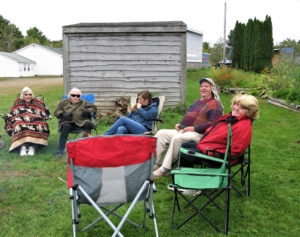
From left to right, Laura Sullivan, Cindy Keller, Katrina Cates, Orin Anderson and Pauline York gather around the fire pit at the annual volunteers’ BBQ. (photo by Connie Bellet)
Anyone can become a member of the LCF for $10.00 per person per year or $25.00 per family of any size. There are no restrictions and no discrimination. Membership applications can be obtained by calling 993-2294 or emailing pwhitehawk@fairpoint.net. The street address is 22 Veterans Way, Palermo, just off Turner Ridge Rd. across from the ball field. Donations are greatly appreciated and are the lifeblood of the Foundation. Please make out checks to LCF and send them to P.O. Box 151, Palermo, ME 04354.
Adults who want to join the LCF and serve the needs of the community are welcome as volunteers or potential Board members. During warmer months, volunteers are needed for garden work, yard and building maintenance. Snow removal services will be needed for hire during the winter months, especially for the safety of Food Pantry clients. Interested plowers and shovelers should call Phil White Hawk at 993-2294. Thank you for your interest and involvement!
The Town Line will continue with a series on local nonprofit groups and their work in their respective communities. To include your group, contact The Town Line at townline@townline.org.
 by Mary Grow
by Mary Grow

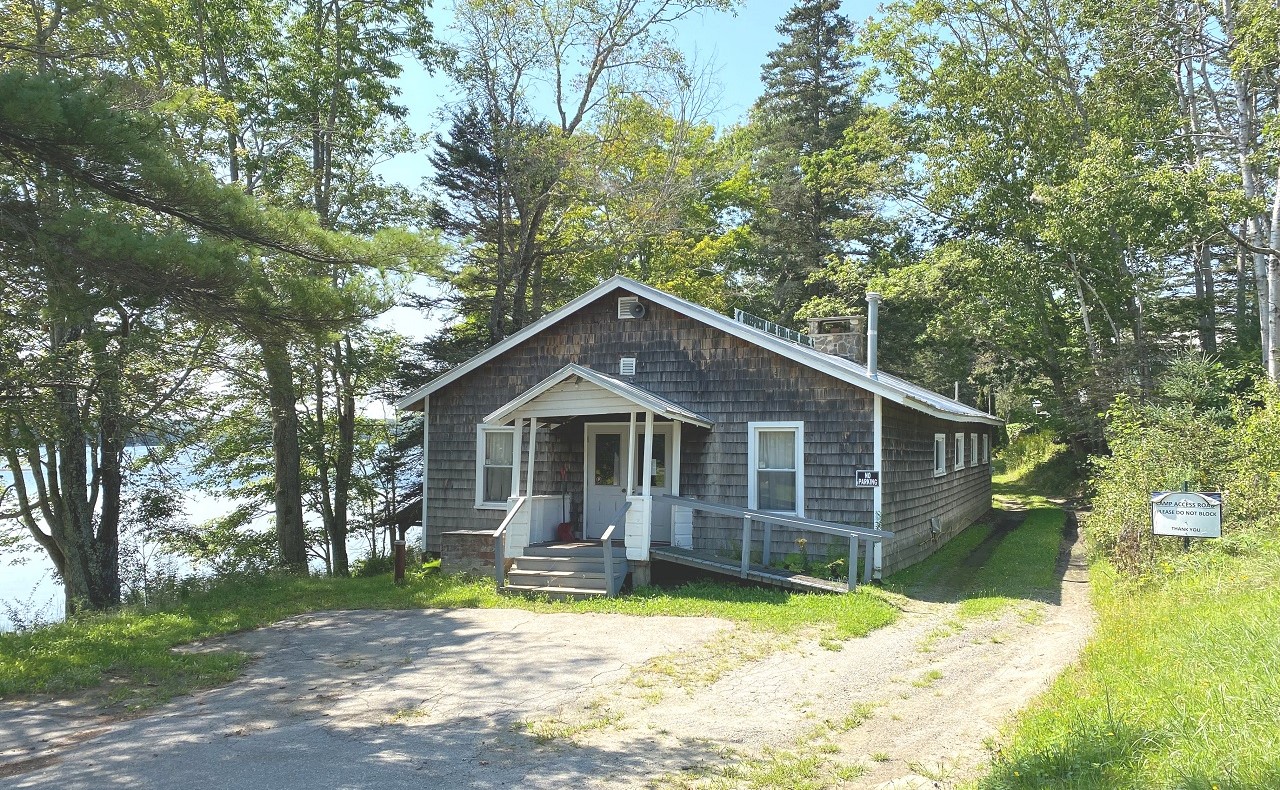

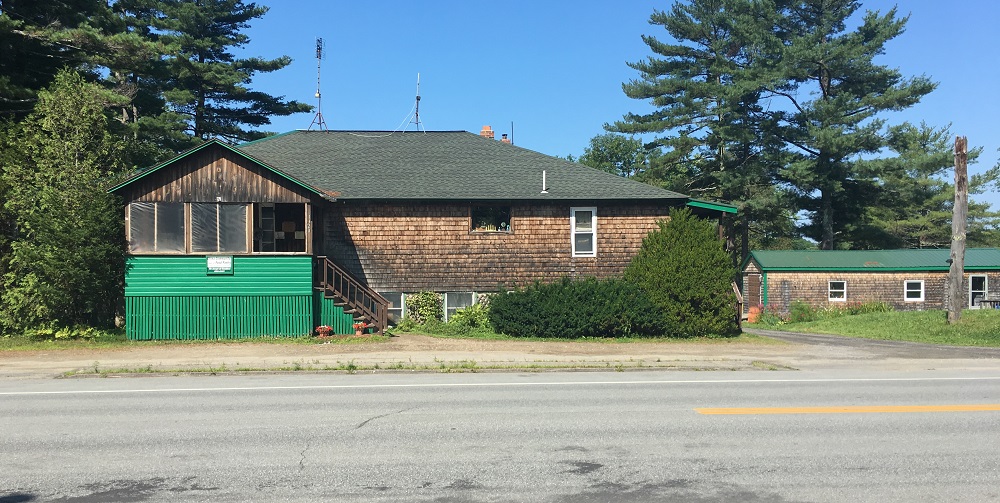
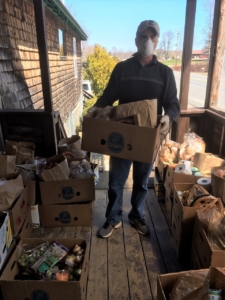
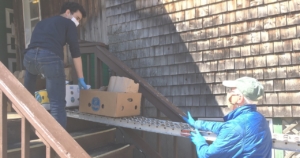




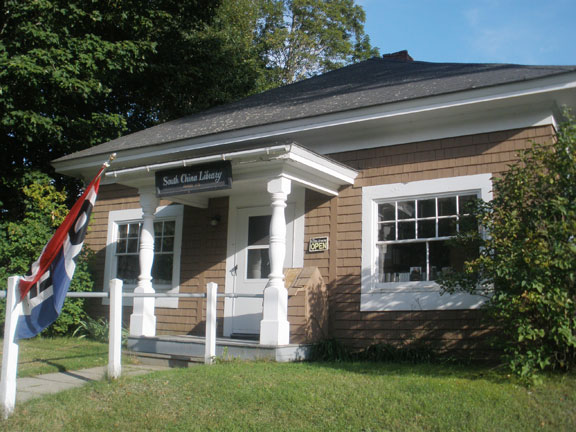


 “The quality of China Lake has improved noticeably over the past five years. I can remember algae so thick on the surface that when I ran my boat I would leave a wake of algae behind me.”
“The quality of China Lake has improved noticeably over the past five years. I can remember algae so thick on the surface that when I ran my boat I would leave a wake of algae behind me.”